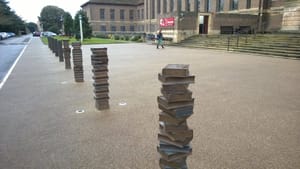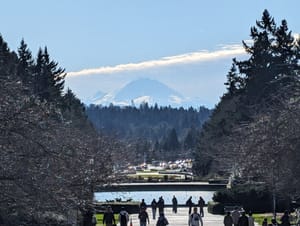An interesting announcement from CLIR about a $4.27M competitive program to describe hidden collections has just appeared. The existence of such collections must be more fully disclosed if they are to release more of their value in research and learning:
With generous funding from The Andrew W. Mellon Foundation, the Council on Library and Information Resources is creating a national program to identify and catalog hidden special collections and archives. The records and descriptions obtained through this effort will be accessible through the Internet and the Web, enabling the federation of disparate, local cataloging entries with tools to aggregate this information by topic and theme. [Hidden Collections]
This is a preliminary announcement and it will be interesting to see how the thinking behind the program is elaborated as more materials appear. The call for proposals will be in June. In particular, I will be interested to see some of the observations about organization, formats and federation frameworks expanded. See for example the following statements which relate to each of these topics respectively:
The program’s strategy for building a distributed organization of cataloging and collection information assumes local autonomy and responsibility but also requires centralized agreements concerning governing principles that will ensure enterprise-wide coherence. [Hidden Collections]
Because tightly defined fields can impede interoperability, recent reports on hidden collections emphasize the need to make the categories and schemes of record creation and descriptions less rigid than those of the past. Cataloging special collections and archival materials has routinely been defined as a local practice. The shift to understanding hidden collections as a national problem entails an acknowledgment that in the 21st century, collaboration, coordination, and coherence of response to users is fundamental and takes precedence over local practice. [Hidden Collections]
The process will involve adopting a technology platform (or platforms) that will allow accurate descriptive information to be entered quickly, efficiently, and cost-effectively. The results of each project will be linked to and interoperable with those of all others to form a federated environment that can be built upon over time. Institutions must acknowledge local ownership of the data generated through the program and agree to its persistence. [Hidden Collections]



